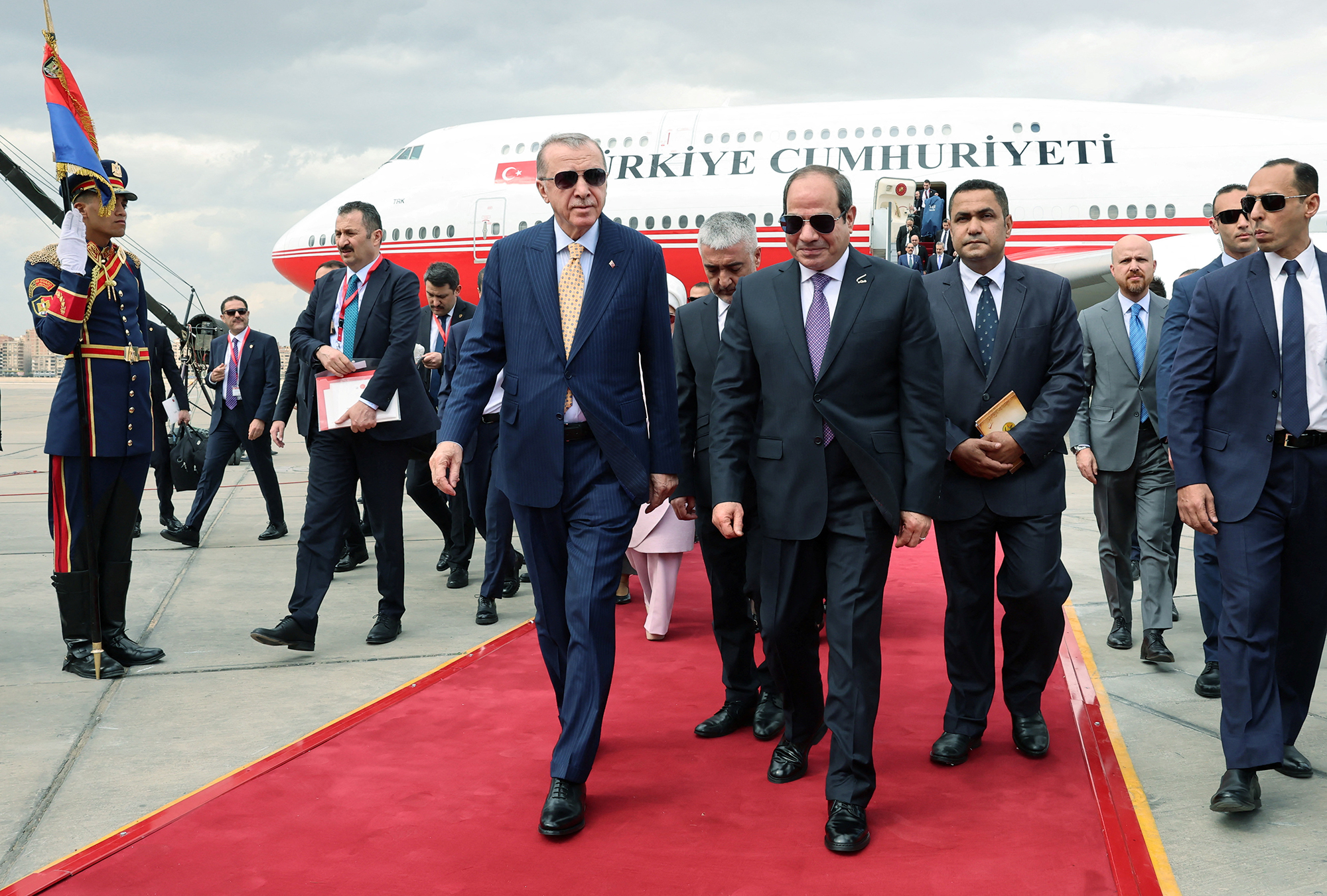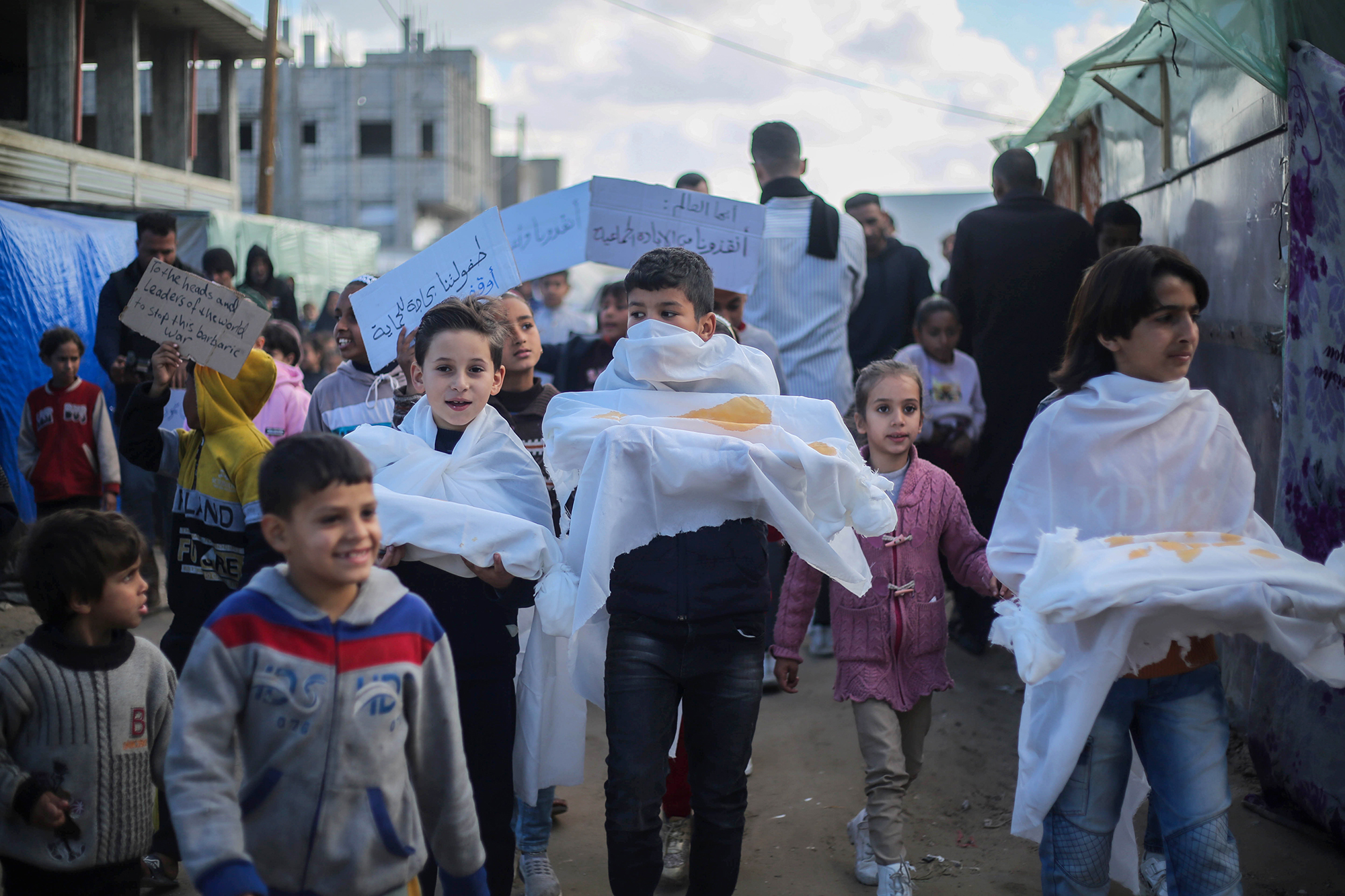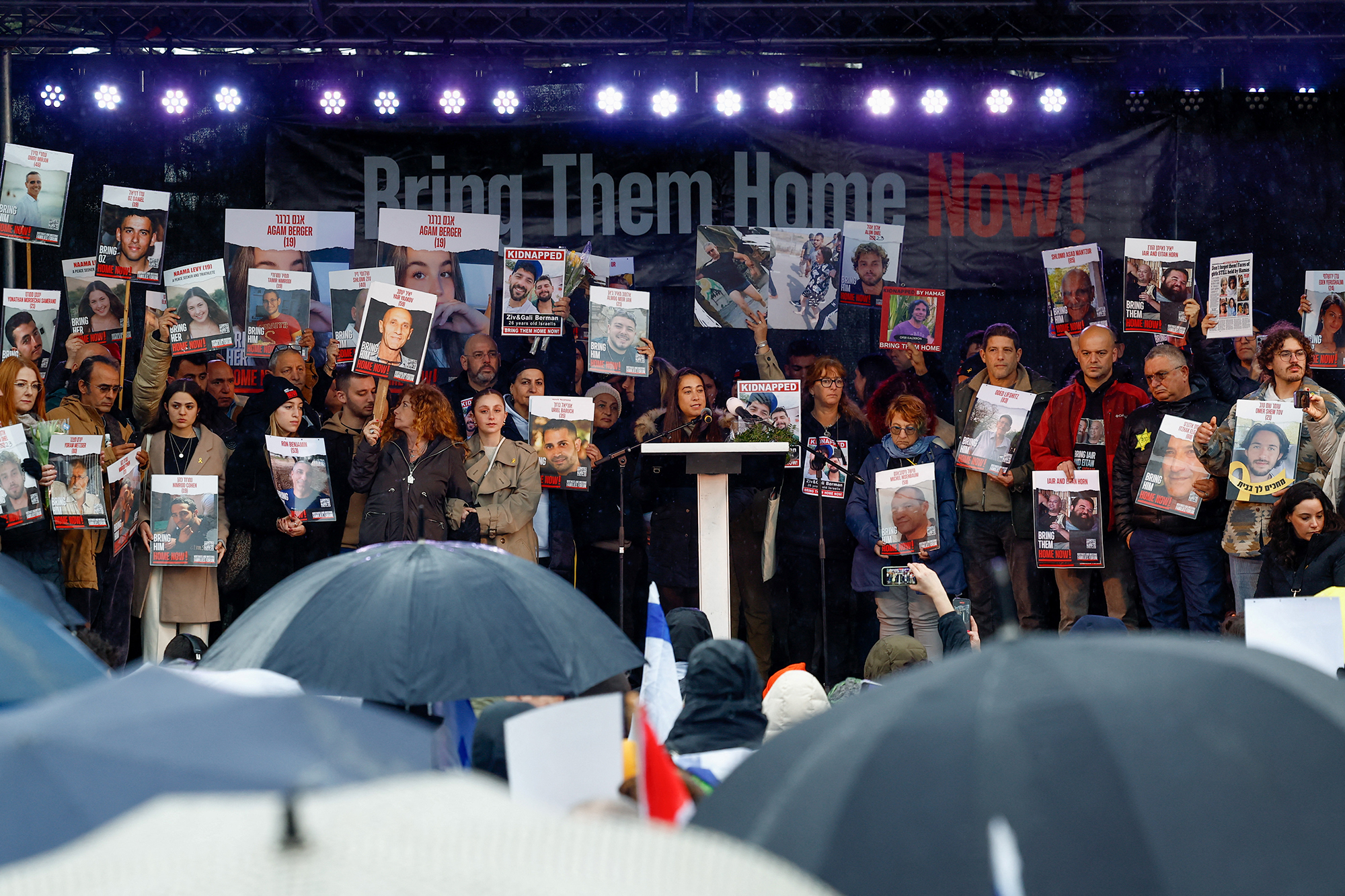US assessing civilian harm from American weapons in Israel, State Department says
The United States is assessing civilian harm from US weapons in Israel, a State Department spokesperson Matt Miller said Tuesday. “We do seek to thoroughly assess reports of civilian harm by authorized recipients of US-provided defense articles around the world, including under the Civilian Harm Incident Response Guidance, the CHIRG,” Miller said at a news briefing.
The acknowledgment of the use of the CHIRG comes as US officials say they are pressing Israel to do more to protect civilians in Gaza, with Secretary of State Antony Blinken saying on his most recent trip to the region, that the toll remains too high. It also comes as the Biden administration faces public outrage over its continued support to Israel in the conflict – outrage that could have political ramifications in an election year.
Key context: Miller suggested that the CHIRG review would not have an impact on the US policy toward the conflict. “That process is not intended to function as a rapid response mechanism,” he said. “Rather it is designed to systematically assess civilian harm incidents and develop appropriate policy responses to reduce the risk of such incidents occurring in the future and to drive partners to conduct military operations in accordance with international humanitarian law."
Well maybe useful for the next genocide... Another non starter.
Turkey's president makes first trip to Egypt in more than 10 years on Tuesday to discuss Gaza
Turkey's President Recep Tayyip Erdogan made his first visit to Egypt since 2012 on Wednesday.

Turkey’s President Tayyip Erdogan, center left, is welcomed by Egypt's President Abdel Fattah al-Sisi, center right, at the airport in Cairo, Egypt, on February 14.
Live feeds from news outlets showed Erdogan in Cairo, disembarking his plane with the first lady and being greeted by Egyptian President Abdel Fattah El-Sisi. Erdogan is due to discuss the situation in the Gaza Strip — including a potential ceasefire and delivering aid —with Sisi, according to a spokesperson of the Egyptian Presidency.
Rift in Turkey-Egypt relations: Diplomatic ties between the two Mediterranean major-Muslim countries reached a low point after now-Egyptian President Abdel Fattah el-Sisi led a military coup to oust the Muslim Brotherhood, the country’s first democratically elected government. Erdogan, whose religious conservative government had close ties to the Muslim Brotherhood, was outraged when it was overthrown in 2014, called Sisi an “illegitimate tyrant.”
As Turkey continued to back the Brotherhood in Egypt and across the region, the relationship continued to deteriorate. Egypt was also part of the years-long blockade of Qatar led by Saudi Arabia and UAE while Turkey stood by Doha. Much to Ankara’s frustration, in 2020 Egypt inked a maritime agreement with Turkey’s main rival Greece in the eastern Mediterranean.
Thawing of diplomatic relations: Only in 2021, following the end of the diplomatic crisis, did relations between Ankara and Cairo begin to warm. Despite strained political ties, trade has more than doubled since an Egypt-Turkey free trade deal came into effect in 2007.
Murat Aslan, an international politics professor at Hasan Kalyoncu University, says Erdogan’s trip is a turning point in relations for the two countries. “The region needs cooperation, not confrontation,” he told CNN.
Spain and Ireland request EU investigation into whether Israel is complying with human rights obligations

Palestinian children march during a protest demanding an end to the war and their right to live, education and play on February 14, in Rafah, Gaza.
Ireland and Spain have requested an EU investigation into whether or not Israel is “complying with its obligations to respect human rights in Gaza,” Spanish Prime Minister Pedro Sanchez announced on social media on Wednesday.
Sanchez and Ireland’s Prime Minister Leo Varadkar wrote a letter to the President of the European Commission, asking the Commission to “undertake an urgent review of whether Israel is complying with its obligations, including under the EU/Israel Association Agreement, which makes respect for human rights and democratic principles an essential element of the relationship.”
The leaders told EU chief Ursula von der Leyen that they are “deeply concerned at the deteriorating situation in Israel and Gaza,” especially with the impact the conflict is having on “innocent Palestinians, especially children and women.” Noting the provisional measures imposed by the International Court of Justice in late January, where it was ordered that Israel must take “all measures” to prevent genocide in Gaza, the leaders called for an immediate humanitarian ceasefire to prevent “further irreversible harm to the people of Gaza."
A spokesperson for the European Commission, Arianna Podesta, told CNN that the Commission received the letter on Wednesday morning. “So of course, what we will do now is look into it,” she said.























































